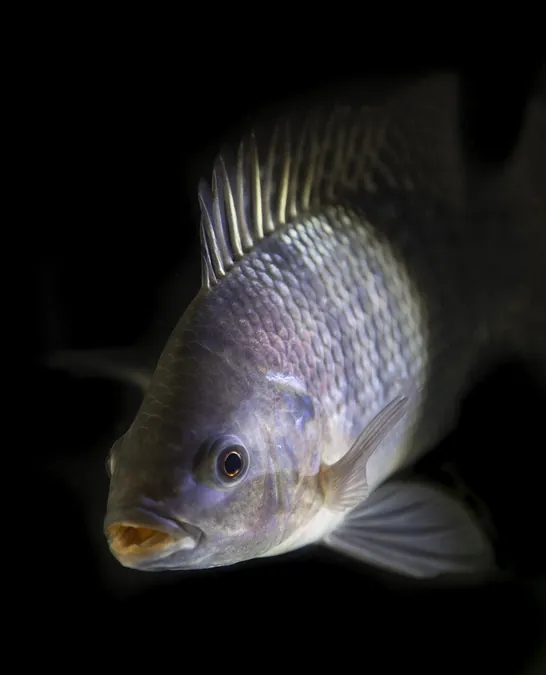
Groundbreaking Research Reveals How Nile Tilapia Use Behavioral Fever to Combat Infections!
2024-12-17
Author: Li
Introduction
A groundbreaking study conducted by a team of life scientists at East China Normal University has revealed a stunning new insight into the behavior of cold-blooded animals—specifically, Nile tilapia. Published in the esteemed Proceedings of the National Academy of Sciences, this research uncovers how these fish may utilize a form of fever, induced by changes in behavior, to help fend off infections.
The Traditional View of Cold-Blooded Animals
While warm-blooded animals are well-known for their ability to generate internal heat to elevate body temperature as a defense mechanism against pathogens, until now, it was largely assumed that cold-blooded creatures lacked this capability. The researchers decided to investigate whether these fish could similarly induce a fever when faced with threatening infections, particularly from a bacterium called *Edwardsiella piscicida*, notorious for causing outbreaks in fish farming.
Experimental Setup
To test this hypothesis, the team set up an experiment where Nile tilapia were placed in specialized tanks equipped with a temperature gradient ranging from 28°C to 34°C. Initially, the fish preferred the cooler end of the spectrum. However, a remarkable change occurred when they began to show signs of illness; they instinctively migrated toward the warmer areas of the tank. This behavior indicates that these tilapia might be actively seeking a temperature that can help bolster their immune response, much like a fever does in warm-blooded animals.
Observations and Findings
The researchers observed that as the infection progressed, the fish exhibited a reduction in appetite, which triggered a biological process called autophagy—essentially a cleanup operation for damaged cells. This reaction signifies a heightened immune response. In addition, the scientists discovered an increase in the expression of genes linked to the longevity of T cells, further confirming that the tilapia were not only coping with the infection but also establishing a more resilient immune system through their behavioral adjustments.
Implications of the Research
This research opens up exciting avenues for understanding how cold-blooded animals might use behavioral strategies to enhance their health. It challenges longstanding beliefs about the limitations of ectothermic organisms and points to a more intricate relationship between behavior and immune function in the animal kingdom.
Conclusion
With fish farming becoming increasingly vital for food security, insights from this study may also lead to innovative methods for managing health in aquaculture settings, potentially reducing reliance on antibiotics and bolstering fish welfare. The implications of these findings are as deep as the oceans these fish inhabit, expanding our knowledge of animal behavior and physiology.
Future Research
Stay tuned for more updates on this fascinating area of research, where animal instincts meet the science of disease!





 Brasil (PT)
Brasil (PT)
 Canada (EN)
Canada (EN)
 Chile (ES)
Chile (ES)
 España (ES)
España (ES)
 France (FR)
France (FR)
 Hong Kong (EN)
Hong Kong (EN)
 Italia (IT)
Italia (IT)
 日本 (JA)
日本 (JA)
 Magyarország (HU)
Magyarország (HU)
 Norge (NO)
Norge (NO)
 Polska (PL)
Polska (PL)
 Schweiz (DE)
Schweiz (DE)
 Singapore (EN)
Singapore (EN)
 Sverige (SV)
Sverige (SV)
 Suomi (FI)
Suomi (FI)
 Türkiye (TR)
Türkiye (TR)